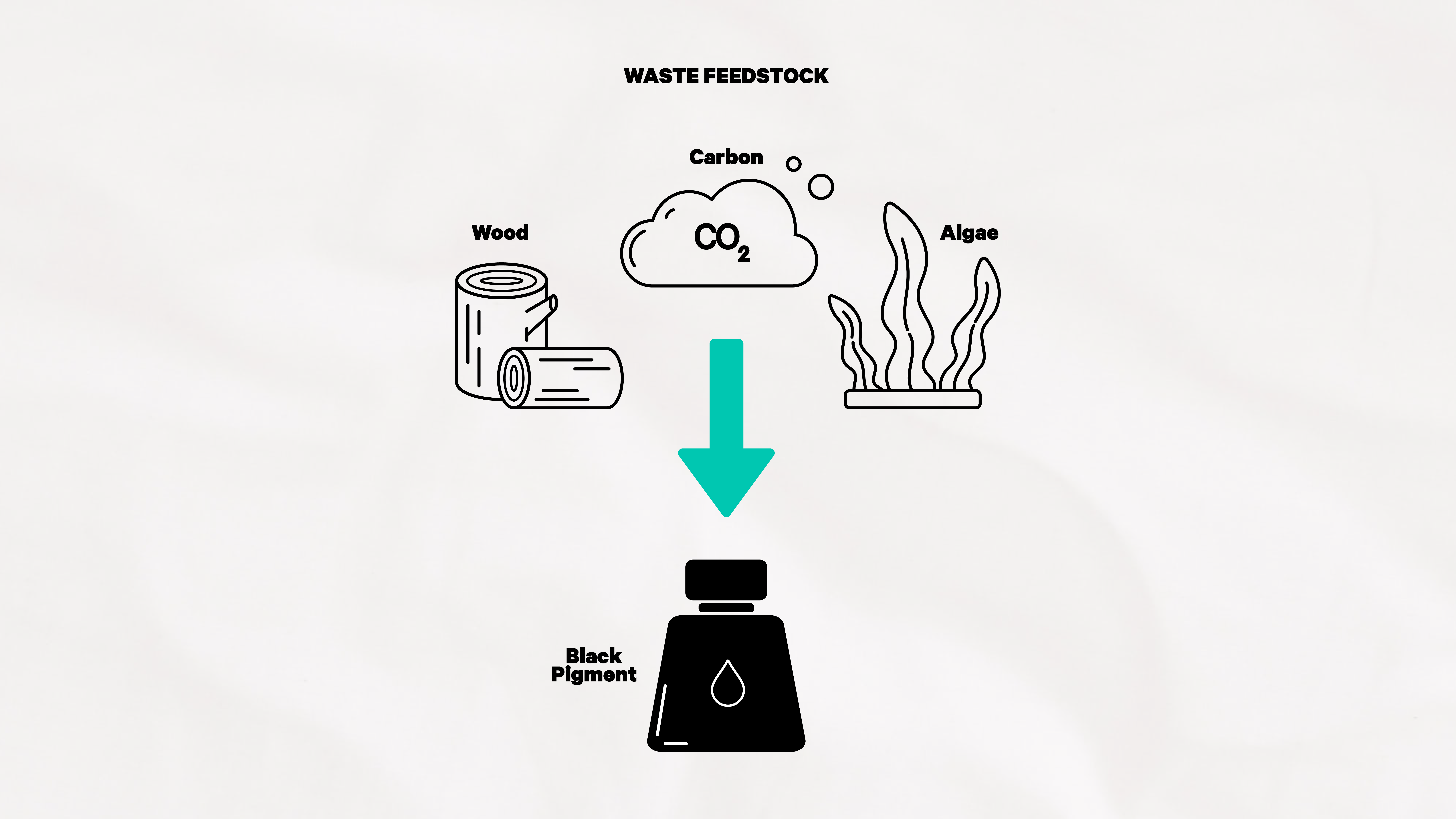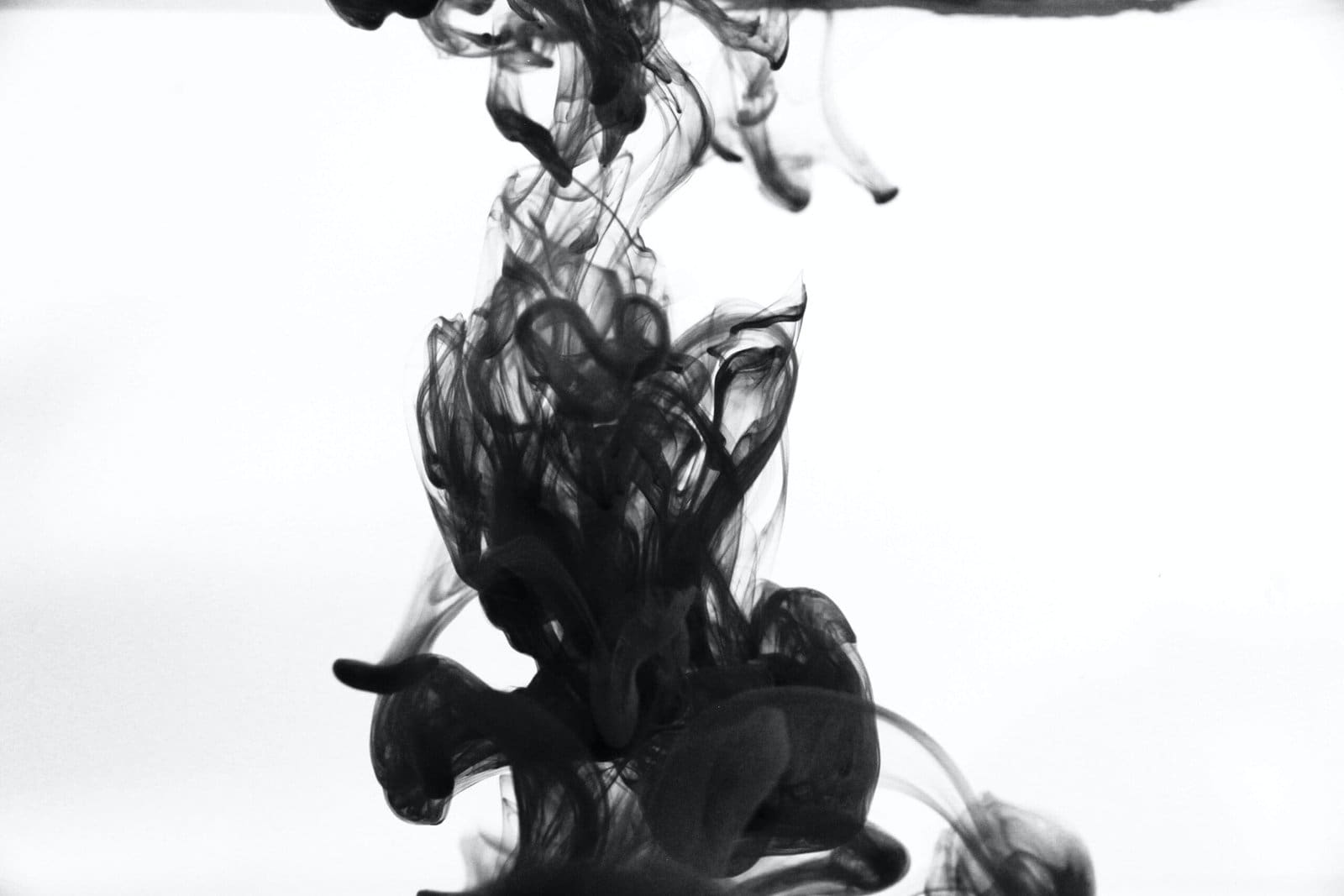AMSTERDAM – Today, Fashion for Good launches the Black Pigment Pilot project together with partners BESTSELLER, Birla Cellulose, Kering and PVH Corp., in collaboration with Paradise Textiles, and innovators Graviky Labs, Living Ink and Nature Coatings. The pilot aims to validate and scale black pigments derived from waste feedstocks such as industrial carbon, algae and wood that could replace synthetic dyes offering a more sustainable means of textile production with a lower carbon impact.
The colour black has a long history in the fashion industry and is one of the most commonly used colours to dye apparel. Modern synthetic dyes are often derived from petro-chemical compounds, which are non renewable and
contribute to water pollution when not treated correctly. The project aims to develop and scale black pigment for the dope dying of man-made cellulosics (MMCs) fibres and recycled polyester (rPet) yarns, evaluating the technologies of the participating innovators; Graviky Labs, Nature Coatings and Living Ink, who produce black pigment from industrial carbon emissions, wood waste and waste algae, respectively.

Thus far, their technologies have only been used in printing applications. To develop formulations for dope dyeing, the innovators will be supported by Fashion for Good partner Birla Cellulose and Paradise Textiles, the dedicated material science and innovation hub of the Alpine Group. Birla Cellulose brings technical know-how and insights into the production of dope dyed MMC fibres and Paradise Textiles is known for its consciously crafted collection of sustainable and performance fabrics as well as integrated, advanced manufacturing processes.
The first phase of the pilot will run until mid 2022, with Birla Cellulose and Paradise Textiles producing the first dope dyed MMCs fibres and rPet yarns respectively, using the black pigments. Participating Fashion for Good partners will have the opportunity to evaluate the performance, colour fastness, wearability and impact of all solutions. Successful formulations will then go on to trial larger production runs with fabrics dyed using the innovations.
To assess the performance of dope dyeing with the innovative black pigment formulations, test variables such as affinity, colour and light fastness, and tensile strength of the fibres and yarns, will be measured against dope dyeing
with the standard synthetic dyes currently used in the industry. Successes in the initial trials, will be developed towards scaling the project beyond fibre and yarn dyeing to textile production with the long-term goal to integrate
these technologies at commercial scale in the value chain.
More information about these pigment innovations, as well as dope dyeing, can be found in Fashion for Good’s Textile Processing Guide.
SUPPORTING QUOTES
“Collaboration is key to making a step change in replacing the abundantly used harmful dyes in the industry, of which black is dominating. We are very excited to be able to support this first-of-its-kind collaborative pilot aiming to validate three technologies that will enable the industry to switch to more sustainable (black) dye chemistry.” – Katrin Ley, Managing Director at Fashion for Good
“Dope dyeing viscose with black pigments that come from a sustainable feedstock can revolutionise the industry by eliminating chemically intensive textile dyeing, the associated wastewater effluents of this process and help reduce GHG emissions of the overall process.” – Dr. Aspi Patel, Chief Technology Officer, Aditya Birla Group
“Kering is constantly looking for new innovations to reduce its own supply chain environmental impact but also to catalyse change within the fashion industry and beyond. Black is an often used colour by all Houses within the Group, therefore we are very excited to see the results of the Black Pigment Pilot pave the way for these more sustainable dyes to take over from their synthetic counterparts” – Christian Tubito, Head of Material Innovation Lab, Kering
“Dyeing is a science in itself, and we are all reliant on experts and innovations to conjure up more sustainable solutions. Through this project focusing on alternative colourants, we hope to find effective solutions that can benefit BESTSELLER as well as the entire industry.” – Anders Schorling Overgård, Sustainable Materials Engineer,BESTSELLER
“Graviky Labs has always believed in circularity and our approach at Graviky of converting carbon emissions to a usable black pigment instigates our beliefs. Through AIR-INK we have been able to showcase the potential of decarbonising surface printing. We’re happy to be a part of this project that goes beyond surface printing and helps us to explore dope dyeing textiles, with the support of Fashion for Good and their partners.” – Nikhil Kaushik, CEO, Graviky
“Nature Coatings’ pigment, made from wood waste, is a direct replacement of petroleum carbon black pigments. We offer 100% bio-based pigments and dispersions. The industry requires a huge shift from currently used synthetic pigments for printing and dyeing textiles. We’re glad to be participating in this project that’s moving the needle in the right direction.” Jane Palmer, CEO, Nature Coatings
“Living Ink is always looking to increase its impact and expand its scope, therefore we are thrilled we are able to participate in this Fashion for Good Project, trialling our algae-derived pigments in a novel application method with some of the most renowned brands and manufacturers in the industry” – Scott Fulbright, CEO and Co-Founder, Living Ink Technologies
“Paradise Textiles is excited to partner on such meaningful work. In order to make fashion fit for the future, it is essential that the textile industry works together to reduce water consumption, and to explore opportunities to colour fibres without heavy metals or synthesised dyestuff that can affect biological systems.” – Lewis Shuler, Head of Innovation, Paradise Textiles

